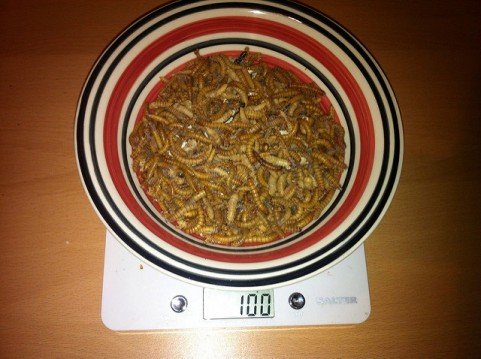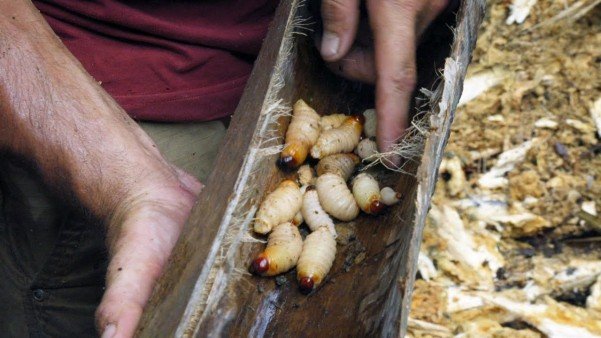The next time a bug falls on your plate, you might just consider yourself the lucky recipient of extra protein.
In the premier episode of National Geographic’s new show Primal Survival host Hazen Audel demonstrates how to come away with a pile of grubs from a log of rotting wood.
Eating larvae, in this case that of capricorn beetles, is a time-testing target for gatherers of wild elibles. Animals and human ancestors have relied on eating insects and larvae for calories rich in protein for thousands of years.
But they come with a price and that’s largely taste, absorbing the flavor of whatever they have been devouring which is often rotting material. You never hear someone say, “bring me a second helping of mealworms,” and that’s probably for good reason.
And to get even a modicum of calories you have to eat quite a few. Roughly 100 grams or 3.5 ounces of mealworms, for instance, is about a bowl full and it contains 250 calories.

That hasn’t stopped some for pushing for a food revolution centered around insects. In Great Britain a restaurant serving all varieties of bugs sprung up in London two years ago offering meal worm burgers and fried crickets.
Insects are a rich source of protein for something so small. A 3.5-ounce or 100 gram serving of June beetles, for instance, supplies about 20 grams of protein. Like other insects, beetles supply calcium and iron, as well as a good amount of zinc.
Among a hearty dose of protein, grasshoppers and crickets are a good source of unsaturated fats, according to the Food and Agriculture Organization of the United Nations, which can help lower your risk of heart disease.
If a man eats 100 grams of red ants, he will have 5.7 milligrams of iron, which is 71 percent of the 8 milligrams men need each day.
A 100 gram serving of mopane caterpillars supplies about one-fourth of the potassium individuals need each day, as well as 100 percent of the copper our bodies require.
Bee larvae, which is available in a can from specialized markets, is high in vitamin B2, iron, copper, and manganese. Out of a 100 gram serving, it contains about 250 calories.
So it pays to eat your insects.
For more on eating insects watch the BBC documentary Can Insects Save the World.
Photo credit: Youtube/ Reptile Forums








